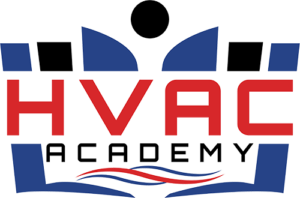In the dynamic field of Heating, Ventilation, and Air Conditioning (HVAC), the importance of hands-on learning cannot be overstated. While theoretical knowledge forms the foundation, practical experience is the bridge that connects aspiring HVAC technicians to the real-world challenges and intricacies of the industry.
Real-World Application
HVAC systems are diverse, ranging from residential units to complex industrial setups. Hands-on learning allows trainees to apply theoretical concepts to actual equipment, gaining a nuanced understanding of how different systems function and interact. This real-world application enhances problem-solving skills and prepares technicians for the variety of scenarios they may encounter in their careers.
Equipment Familiarity
In HVAC training, students work directly with the tools and equipment used in the industry. This hands-on approach helps them become familiar with various instruments, gauges, and machinery, fostering confidence in their ability to handle and troubleshoot different components. Familiarity with equipment is essential for efficient and effective work in the field.
Troubleshooting Skills Development
Troubleshooting lies at the heart of an HVAC technician’s responsibilities. Hands-on learning provides trainees with the opportunity to diagnose and rectify issues in a controlled environment. This practical experience hones their troubleshooting skills, teaching them to identify problems, analyze root causes, and implement effective solutions—a skill set critical for success in the HVAC profession.
Safety Training
Working with HVAC systems involves inherent risks, and safety is paramount. Hands-on training includes practical lessons on safety protocols, ensuring that technicians are well-versed in industry-standard safety practices. This knowledge is not just theoretical; it is ingrained through hands-on experience, promoting a culture of safety-conscious technicians.
Team Collaboration
HVAC projects often require collaboration among team members. Hands-on learning encourages trainees to work together on installations, repairs, and maintenance tasks, fostering teamwork and effective communication. These collaborative experiences mimic real-world job scenarios, preparing technicians for the cooperative nature of the HVAC industry.
Preparation for Real Challenges
While theoretical knowledge provides a conceptual framework, hands-on learning prepares technicians for the unexpected challenges they may face in the field. Whether it’s navigating tight spaces, addressing unforeseen issues, or adapting to diverse HVAC systems, practical experience equips technicians with the adaptability required in real-world situations.
Hands-on learning is the cornerstone of effective HVAC training. It transforms theoretical knowledge into practical expertise, ensuring that aspiring technicians are well-prepared to tackle the complexities of the HVAC industry. By bridging the gap between theory and application, hands-on learning sets the stage for a successful and fulfilling career in HVAC.
HVAC Academy will help you attain the goals you are looking for in a concise, straightforward format.
Contact us for more information.






Leave A Comment